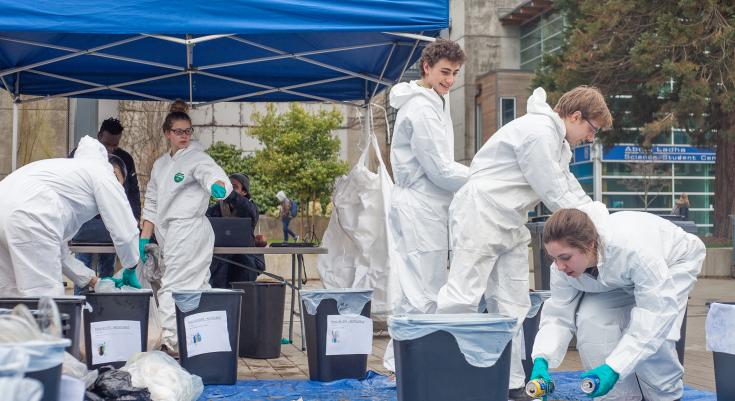
For the fourth year in a row, student volunteers led a waste audit at the AMS Nest to highlight the amount of material that is thrown into the garbage instead of being recycled. During a 12 hour period on March 15, 2017, 60 volunteers collected 387 kg of waste from the AMS Nest.
Volunteers from Common Energy, UBC’s largest student sustainability club collected items from the Sort It Out stations within the Nest and deposited it on the plaza outside the building for everyone to watch the sorting process.
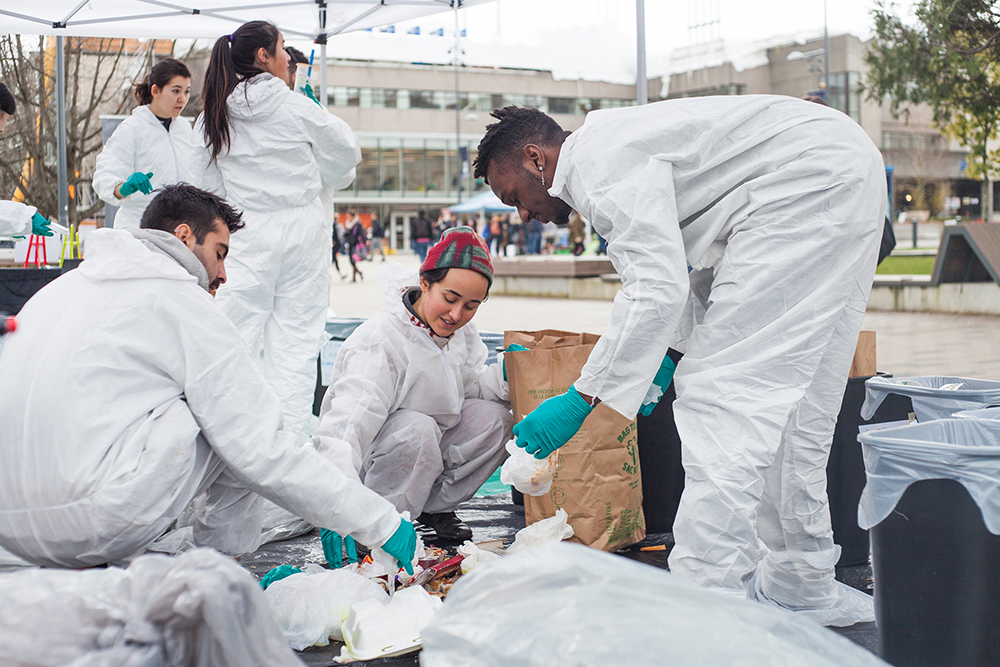
Volunteers from Common Energy sort waste collected from the AMS Nest. Photo by Torun Halverson.
Sort It Out
Dressed in white protective suits and gloves, volunteers sorted through, weighed and documented hundreds of kilograms of waste. Four large stations allowed space for sorting into categories – compost, recyclable containers, paper, coffee cups, plastic water bottles, and compost. One table displayed uneaten food that was thrown away. On average the Nest produces about 3,300 kg of garbage per week, not including recyclables.
The group was joined by volunteers from the Melt Collective, a student-run group who is exploring how UBC can recycle plastic into useful products. The Melt Collective organized one of the stations and sorted recycling into a remarkable 15 streams to get detailed data on the type of plastic in the recycling stream.
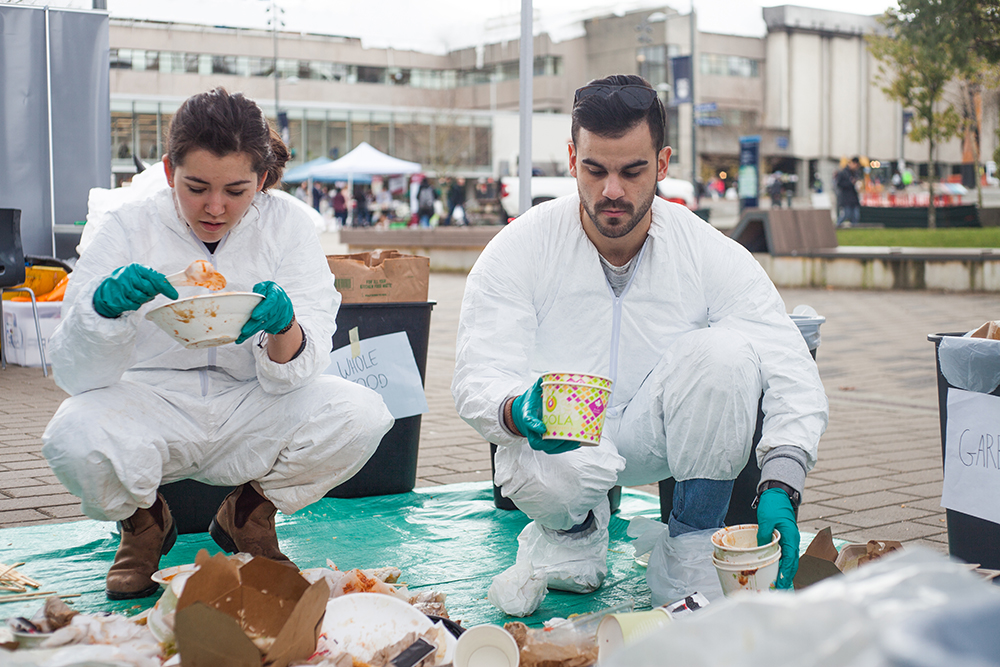
Volunteers from Common Energy sort through containers collected during the zero waste audit. Photo by Torun Halverson.
George Radner, who leads Common Energy’s Zero Waste Team, said “overall we found that items tossed into the garbage were missorted 78% of the time.” He noted that more than 500 coffee cups were collected during the day.
Taking a break from sorting through plastic containers, Ana Gargollo, Director of Common Energy said “This event is important because it brings awareness to the fact that sorting it out makes a difference and has a large impact. We conduct the audit because UBC is trying to work towards 80% diversion from the landfill and it’s important to do an audit for AMS as the Nest is a major source of waste on campus.”
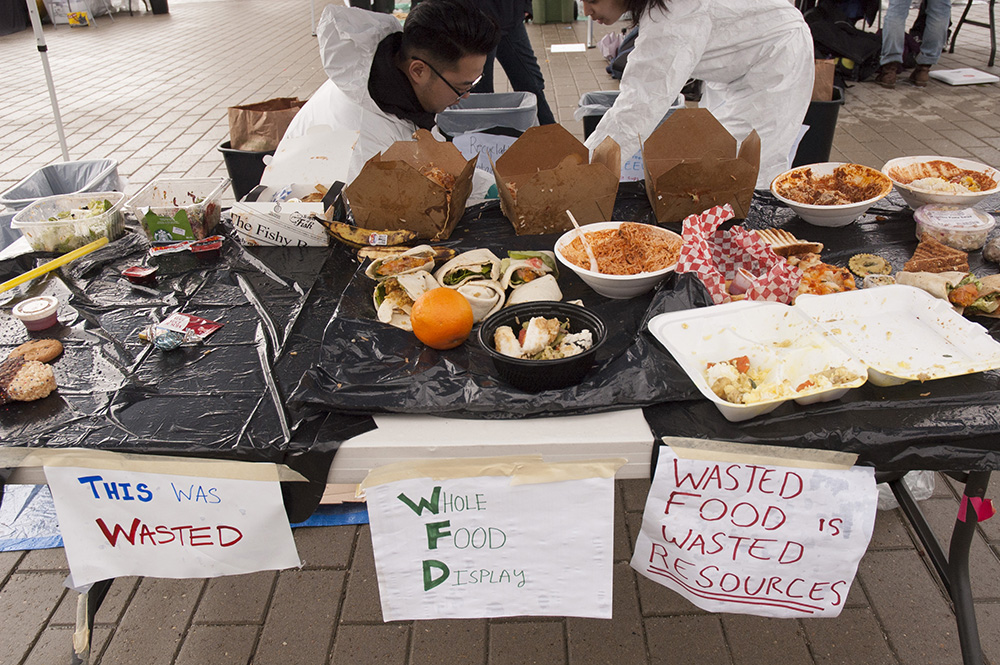
Volunteers from Common Energy at one of the sorting stations. Photo by Angelique Crowther.
Gesturing at the piles of sorted waste Gargollo said “some people just throw waste into the bin and forget about it and this shows the impact.” As someone who lived in Mexico City – a city with a bad reputation for sustainability - Gargollo was initially overwhelmed by the Sort it Out stations when she arrived on campus four years ago.
“UBC is a diverse campus and people may not be familiar with recycling where they come from. It’s important to realize not everyone is in a sustainability bubble and education still needs to happen.”
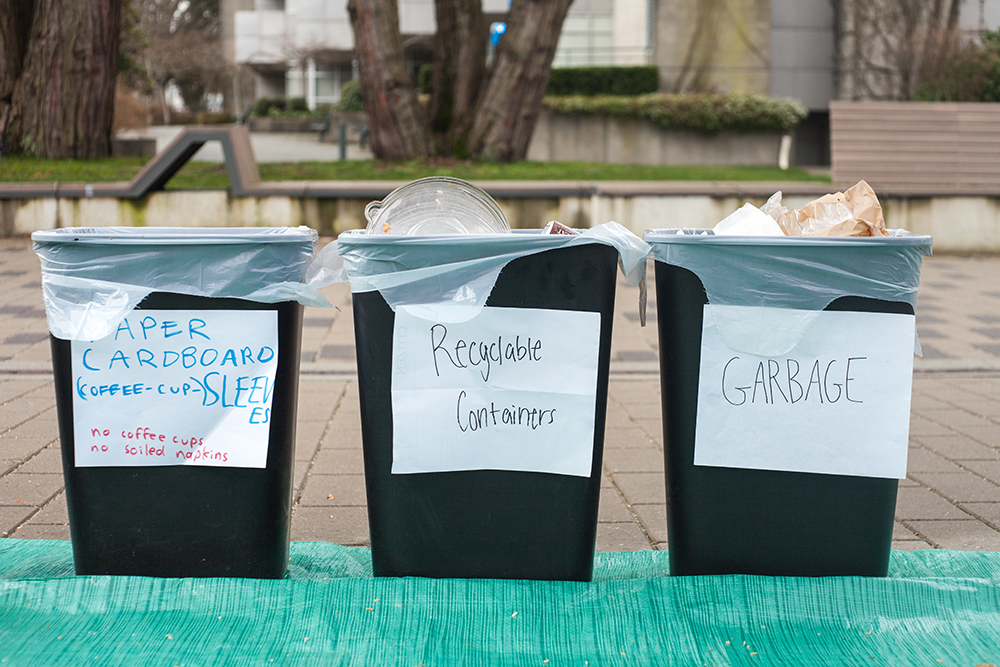
Sorting containers at the zero waste audit. Photo by Torun Halverson.
She points out that the Sort it Out stations are important and it pays to be mindful when using them. “Plastics and other materials that are tossed into the compost bin can affect the operation of the machine. Plastic bags jam the machine and it makes for a less quality compost.”
Love Your Mug
UBC’s Zero Waste Squad also participated in the audit and held their own event called “Love Your Mug” at the Nest on March 17, 2017 to demonstrate the large number of disposable cups tossed each day into Sort it Out stations.
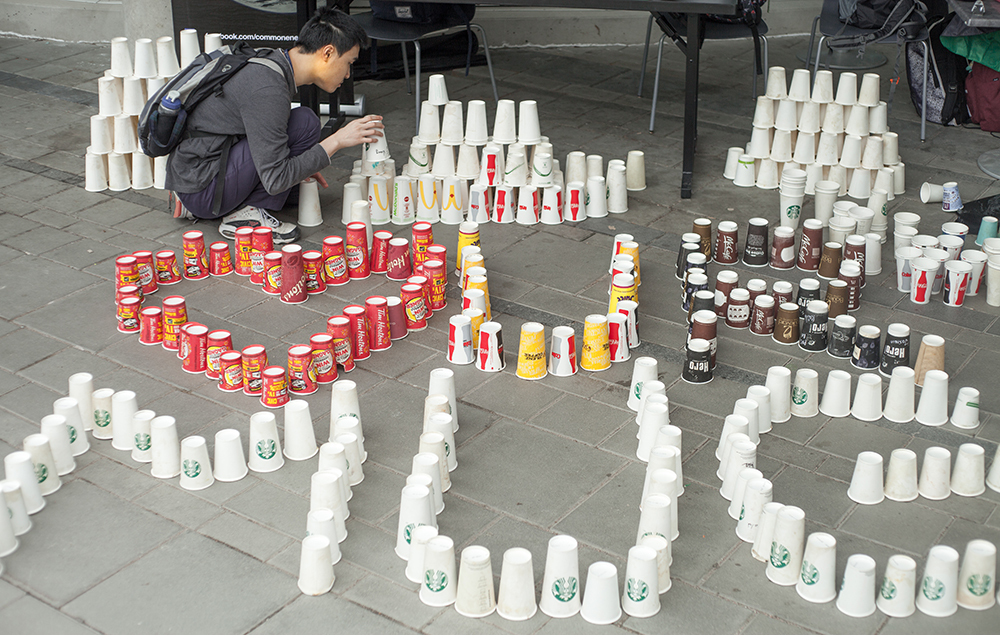
Volunteers from UBC’s Zero Waste Squad artfully display disposable cups found at the Nest.
Volunteers collected cups from the Sort it Out stations in the Nest and artfully displayed them on the steps of the Nest. A recent data audit shows that 2000 disposable coffee cups go to the landfill every day from UBC.
Last year, Common Energy and the AMS launched a mug share program to help reduce the number of disposable cups at the Nest. This summer, a mug share machine will be introduced at Uppercase to make it more convenient for students to choose their own mug. The machine is a UBC SEEDS Sustainability Program project.
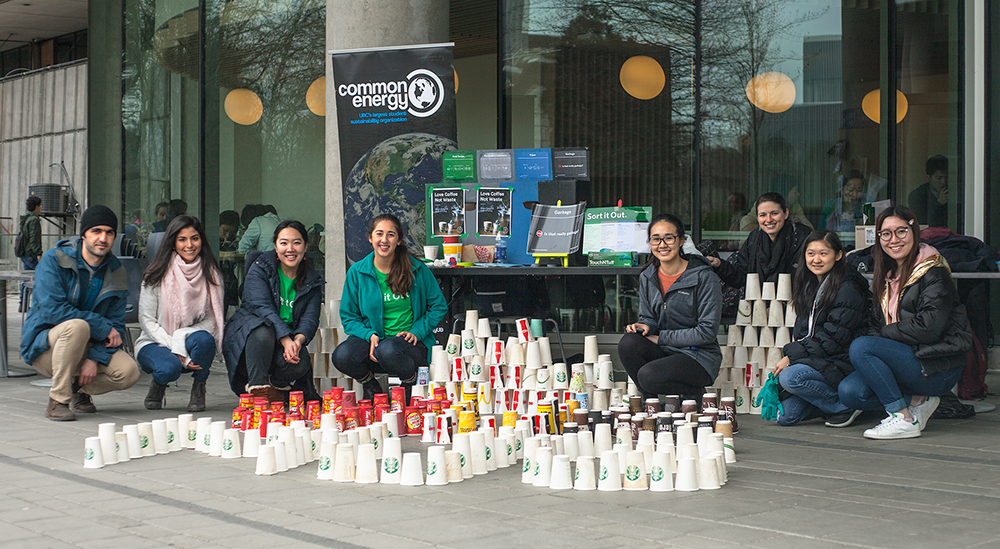
Members of the Zero Waste Squad and Common Energy at the Love Your Mug event.
The Zero Waste Squad is a new volunteer peer-to-peer led program launched in 2017 to educate the campus community about recycling and composting, and to help reduce waste from events. They have supported 18 education and outreach events over the past semester. Commenting on the waste audit Keiko Nariya, Zero Waste Events Coordinator, said “Hosting an event like this challenges our existing view on the waste that we generate every day. Sifting through every single piece of garbage not only gives us an understanding of how good or bad we are at sorting our garbage, but also shows our consumer culture and how we're so used to it.”
Supporting UBC’s Zero Waste Action Plan
The audit held at the Nest raises awareness of UBC’s Zero Waste Action Plan, which was launched in 2011 following a major waste audit and consultation with the UBC community. The plan includes targets to reduce and manage waste across campus.
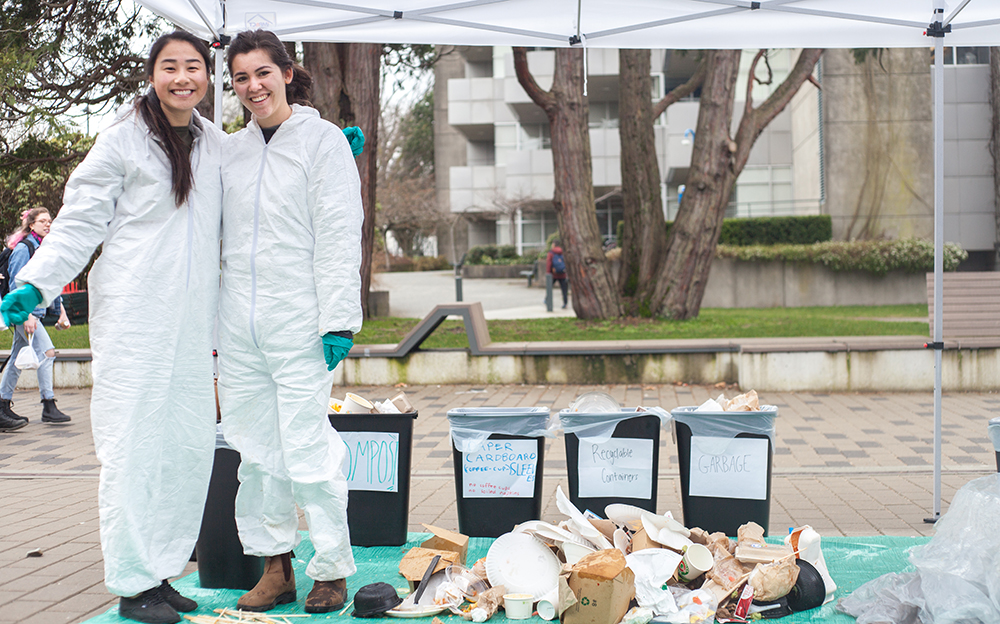
Volunteers from Common Energy at one of the sorting stations. Photo by Torun Halverson.
Bud Fraser, UBC’s Senior Planning and Sustainability Engineer, said “The audit of the AMS Nest is an event that directly supports UBC's zero waste program and waste diversion targets. Not only does it provide important information about the makeup of the garbage generated in the Nest, it also gets our attention in a very visual way, requiring us to confront all the resources we have unthinkingly discarded into the garbage bin.”
The audit was sponsored by Campus + Community Planning’s Sustainability and Engineering department.